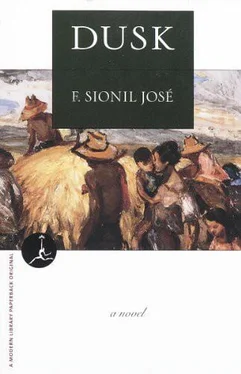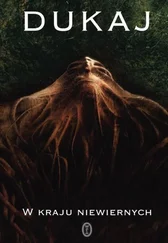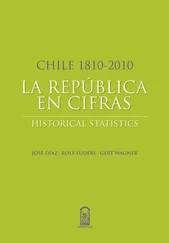Morning again; the shore seemed much nearer. A wave lifted her, and through eyes that smarted she was overjoyed to see the line of trees on the shore. But her arms were no longer hers, her throat was being scraped by thorns. With no food in her belly for two days, it seemed as if it were being gnawed by sharp fangs. The banana trunk seemed so enormous, she could no longer hold on to it, and all around her, the turbulence of waves, the sound of crashing surf, of thunder.
“I was very surprised to find out later that I was alive,” she said. The man who rescued her had seen her from the shore clinging to the banana trunk. There were no houses in this part of the coast — surely she was not out there for a swim. He was not a good swimmer but he had four large coconuts whose husks were ripped partially then tied together. He used them as floats when he swam out to her. She was hardly conscious when he reached her, her arms like a vise on the trunk; he towed her to the shore and carried her to his cart, watched her sleep till early evening, when she finally woke up.
“It was dark,” Dalin said, “but there was this cooking fire at my feet, and this man with one hand tending the pot. I cried again and again with happiness. My body ached all over — the blisters on my skin — and I realized that I was naked, that he had removed my wet clothes and covered me with a blanket. More than that, I realized, too, that he had bathed me with fresh water — there was no salt water on me. Even my hair had been combed. I remembered my vow.”
He was more than twice her age. He had taken the seaside route and was carrying back to the Ilokos three sacks of grain and a jar of salted fish. He had gone to eastern Pangasinan and had gleaned the newly harvested fields there. He would tell his people of the virgin lands where they could still settle, the mountains they had to cross.
That night she ate for the first time and never before had rice and green tomatoes dipped in salted fish tasted so good. But he forbade her to eat or drink too much. He made soup with marunggay leaves which scalded her insides and warmed her all over. He was right in warning her, for hardly had the food settled in her belly than she started to vomit.
She could not make out his face too well in the light of the cooking fire, but she could see the ridges on his forehead and his only hand. Before she went to sleep naked under the coarse Iloko blanket, the uneven earth covered with grass mat, she wondered what his thoughts had been when he undressed her.
She woke up very late, the sun a glaze upon the land and sparkling on the sea to her right. The blanket had slipped and her breasts and her belly were exposed. Nearby on the grass, her skirt and blouse were already dry and she stood up weakly and put them on. Her benefactor was nowhere in sight, the cart still unhitched beside her. He was not inside. Down to the left, his white bull was tethered to an ipil sapling and was grazing on the stubbly grass. Beyond the growth of ipil trees and scrub was a wooded hill; on the trail farther on, two carts were straining up the incline. He emerged from the screen of trees slumbering in the heat, on his shoulder a bundle of dry twigs for firewood.
He had a dark kindly face, a small nub of a nose. “There is food in the pot,” he said with a faded smile. “You vomited everything you ate last night …”
She wanted to rush to him, to kiss his hand, but she could only stumble forward. He helped her to climb up on the cart, which was loaded with grain, coconuts, and the jar of salted fish, then he hitched it. He wanted to take her back to Lingayen, but there was no one there to whom she could return; besides (she did not tell him) there was this vow she had made. If she was going back at all, it would be on a pilgrimage of gratitude to the Virgin in Manaoag. Would he take her there? Yes, but first he must go back to his people in the north — they needed the grain he was bringing back.
That day, her dead skin started to peel and in time the blemishes disappeared. She gathered catuday flowers and marunggay leaves along the way, and cooked them flavored with young tamarind leaves.
He told her she could leave him anytime, particularly after she had regained her strength. After all, she was no stranger to this route but she said she would go wherever he would go. She was his servant and would ask for no money, just the food she ate. She drove the cart at night, and while they rested in the daytime, she gathered grass for the bull. It was a big beautiful animal — and patient.
On the seventh night on the seaside road they stopped by a river which they would cross in the morning. It was dry along the bank and on the opposite side other travelers had also stopped for the night. Her strength was fully restored, but sleep was often fitful and, as he told her, she often screamed in the night. She always slept in the cart, atop the sacks of grain, while he slept on the ground, sometimes beside the cart, but always close to the bull. They had eaten and she had washed the pots. Cicadas were lost in the grass as the darkness came quickly. Somewhere in the distance, a dog howled. All the cooking fires of the other travelers arrayed farther up the bank had long been extinguished. Below them, the river had become but a thin and shallow stream, gurgling now as it coursed through boulders and their catch of weeds. As the night deepened, she went down from the cart and lay beside him. He told her she was like a daughter to him. He was a widower; there was no reason for him to refuse other than his feelings of shame, if not of inadequacy. He had grown-up children and the grain he was bringing home was for them. I have not had a woman for many years, he told her, but in a while, he responded and quietly she accepted him. Gratefully she kept her pledge.
Years afterward, Istak would always remember not just this story but how he, too, had made his vow. That night she unfolded her past to him, he told her, “I will also do whatever you bid me.”
Her touch upon his chest was soft and warm. “You are not well yet,” she said.
It seemed as if an eternity passed before the second day came. The pain — continuous and dull — the loss of blood, the anxiety, all these had weakened him. His mind remained clear and he could hear the quiet talk of his kin, the things they forgot to bring in their hurry, the scouting for the direction they must take. He had not eaten anything except several spoonfuls of broth his mother had prepared from marunggay leaves. They stopped and when Mayang bent over to give him another spoonful, he asked in a whisper: “Where are we now?”
“You know how Bit-tik likes to wander. He says we are close to Vigan. From here, we can see the bell tower of Bantay …”
Through mists and the throbbing pain, he could imagine Vigan again, Ciudad Fernandina — regal city of the north, the repository of wealth as only Ilokano industry and commerce could amass it; Vigan, anointed domain of power and learning, of grace and beauty and all the plenitude of blessings that are bestowed on those who commanded in the name of God and of the Spanish realm. He first saw it as a boy of fifteen when Padre Jose took him to the seminary there. He had followed the old priest silently and in awe of the resplendent appointments, the convent with its huge oil portraits of beatified priests, and within the vast masonry, the august halls glowing with the luster of piety and age, as if wisdom were impregnated in the gray walls forever.
Then to dinner in one of the pretentious houses nearby, and from the kitchen where he was sent to eat with the other servants, he had glimpsed the wide living room ablaze with crystal chandeliers, the finely crafted furniture, the porcelain vases that stood serene in solemn corners. The kitchen itself was floored with tile. And beyond it, the dining room with its giant fan overhead, a table laden with sweet ham and other exotic meats, and under the table, two young girls with fans stirred a breeze and drove away the mosquitoes from those legs encased in black woolen trousers or billowy satin skirts and pointed shoes. Here they were, the men and women of noble bearing, educated in Manila and well traveled in Europe, the wealthy mestizos, Europeans, and, of course, the Spanish prelates who ruled. And after the dinner, Spanish brandy, preserved sweets, and the elegant music of a string quartet. They glided with case, these elegant women in embroidered blouses, their fingers sheathed in diamonds, complaining of their peasant servants and how far they were from Manila, where they could be pampered with the latest gossip, fashions, and imports from the continent; the men in tight suits rambling on about the sinking price of indigo, the new profits to be made in ranching, and yes, their uneasiness and disdain for the heathen English scourge of Freemasonry, which seemed to reach out to Ciudad Fernandina.
Читать дальше












